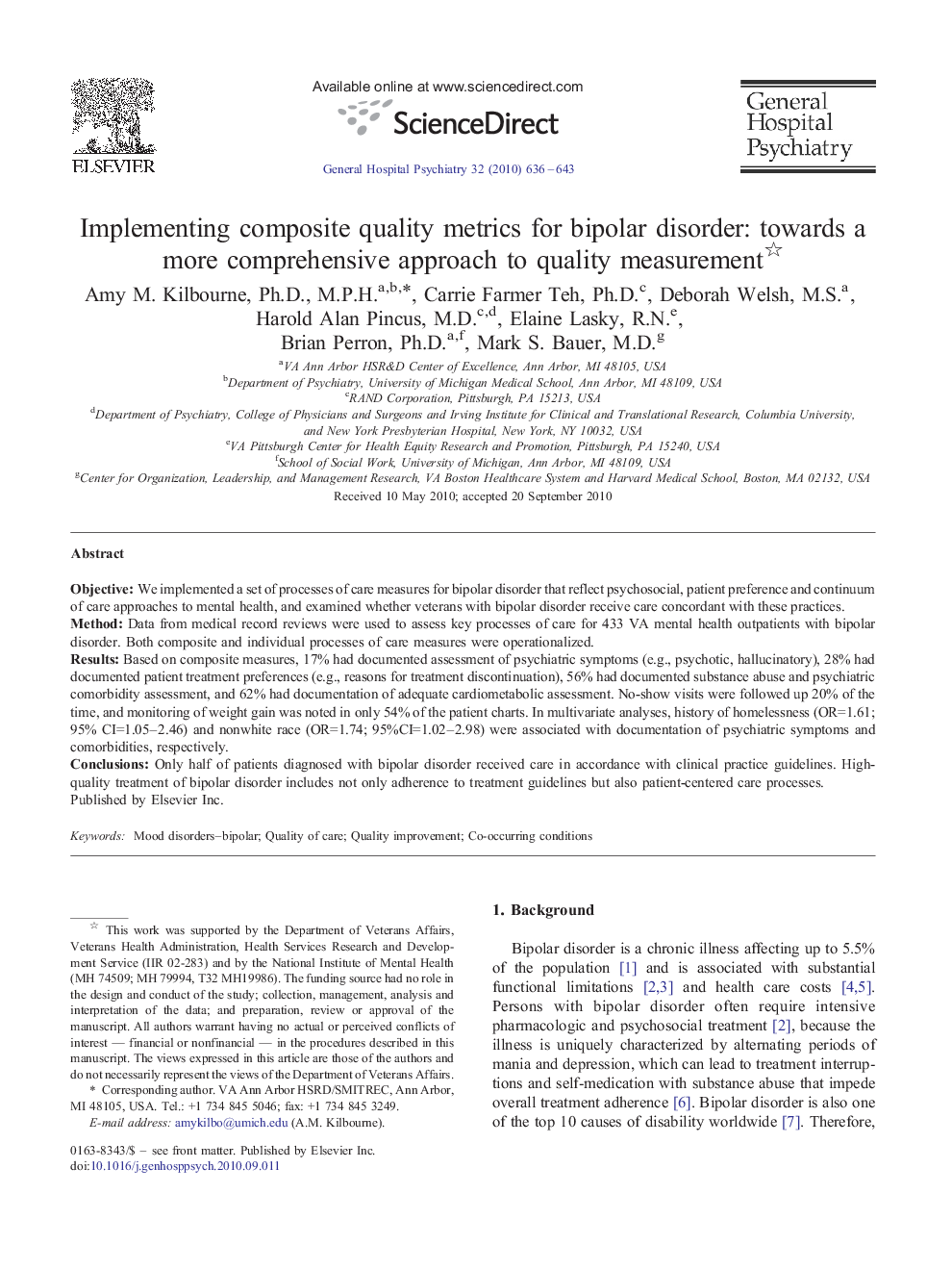| Article ID | Journal | Published Year | Pages | File Type |
|---|---|---|---|---|
| 3237895 | General Hospital Psychiatry | 2010 | 8 Pages |
ObjectiveWe implemented a set of processes of care measures for bipolar disorder that reflect psychosocial, patient preference and continuum of care approaches to mental health, and examined whether veterans with bipolar disorder receive care concordant with these practices.MethodData from medical record reviews were used to assess key processes of care for 433 VA mental health outpatients with bipolar disorder. Both composite and individual processes of care measures were operationalized.ResultsBased on composite measures, 17% had documented assessment of psychiatric symptoms (e.g., psychotic, hallucinatory), 28% had documented patient treatment preferences (e.g., reasons for treatment discontinuation), 56% had documented substance abuse and psychiatric comorbidity assessment, and 62% had documentation of adequate cardiometabolic assessment. No-show visits were followed up 20% of the time, and monitoring of weight gain was noted in only 54% of the patient charts. In multivariate analyses, history of homelessness (OR=1.61; 95% CI=1.05–2.46) and nonwhite race (OR=1.74; 95%CI=1.02–2.98) were associated with documentation of psychiatric symptoms and comorbidities, respectively.ConclusionsOnly half of patients diagnosed with bipolar disorder received care in accordance with clinical practice guidelines. High-quality treatment of bipolar disorder includes not only adherence to treatment guidelines but also patient-centered care processes.
